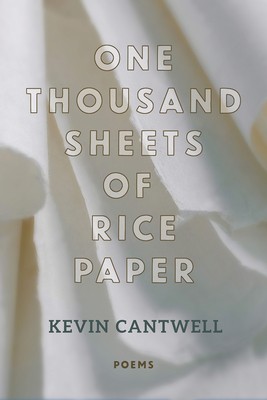
- We will send in 10–14 business days.
- Author: Kevin Cantwell
- Publisher: Mercer University Press
- ISBN-10: 0881468754
- ISBN-13: 9780881468755
- Format: 15 x 22.8 x 0.8 cm, minkšti viršeliai
- Language: English
- SAVE -10% with code: EXTRA
Reviews
Description
"This third collection of Cantwell's poetry is characterized less by the formalism that sometimes marked Something Black in the Green Part of Your Eye than by the lyric poem as an exploration of the process of making art. The title poem recounts an anecdote about the mid-century painter Robert Motherwell and the nature of the real, and the opening poem returns to the familiar landscape of the Florida Panhandle where the speaker crosses unmarked rivers at night while getting disoriented, then stymied, by waters that cannot be crossed. Intimate poems from family life give pointed texture to the more meditative encounters within the paragraphing of longer stanzas. An exchange between brothers who cannot afford to bury their mother is overheard while they toy with a gull by throwing bits of shell in the air as if it were bread. A longer poem in five sections experiments with the space a poem establishes on the page and which pressures the kind of poem each of its sections make; "You can turn your life around," that poem asserts, "but not the ship of night." As the poet has inscribed elsewhere, the lives of other poets move through the imagery, forming an allegiance to the life of the mind. The elegy is, therefore, characteristic, in one instance for the late Seaborn Jones, and in another example, a poem built upon couplets after a claim, via the late James Merrill, that one should not wish to know what lies ahead in life"--
EXTRA 10 % discount with code: EXTRA
The promotion ends in 23d.06:09:46
The discount code is valid when purchasing from 10 €. Discounts do not stack.
- Author: Kevin Cantwell
- Publisher: Mercer University Press
- ISBN-10: 0881468754
- ISBN-13: 9780881468755
- Format: 15 x 22.8 x 0.8 cm, minkšti viršeliai
- Language: English English
"This third collection of Cantwell's poetry is characterized less by the formalism that sometimes marked Something Black in the Green Part of Your Eye than by the lyric poem as an exploration of the process of making art. The title poem recounts an anecdote about the mid-century painter Robert Motherwell and the nature of the real, and the opening poem returns to the familiar landscape of the Florida Panhandle where the speaker crosses unmarked rivers at night while getting disoriented, then stymied, by waters that cannot be crossed. Intimate poems from family life give pointed texture to the more meditative encounters within the paragraphing of longer stanzas. An exchange between brothers who cannot afford to bury their mother is overheard while they toy with a gull by throwing bits of shell in the air as if it were bread. A longer poem in five sections experiments with the space a poem establishes on the page and which pressures the kind of poem each of its sections make; "You can turn your life around," that poem asserts, "but not the ship of night." As the poet has inscribed elsewhere, the lives of other poets move through the imagery, forming an allegiance to the life of the mind. The elegy is, therefore, characteristic, in one instance for the late Seaborn Jones, and in another example, a poem built upon couplets after a claim, via the late James Merrill, that one should not wish to know what lies ahead in life"--


Reviews